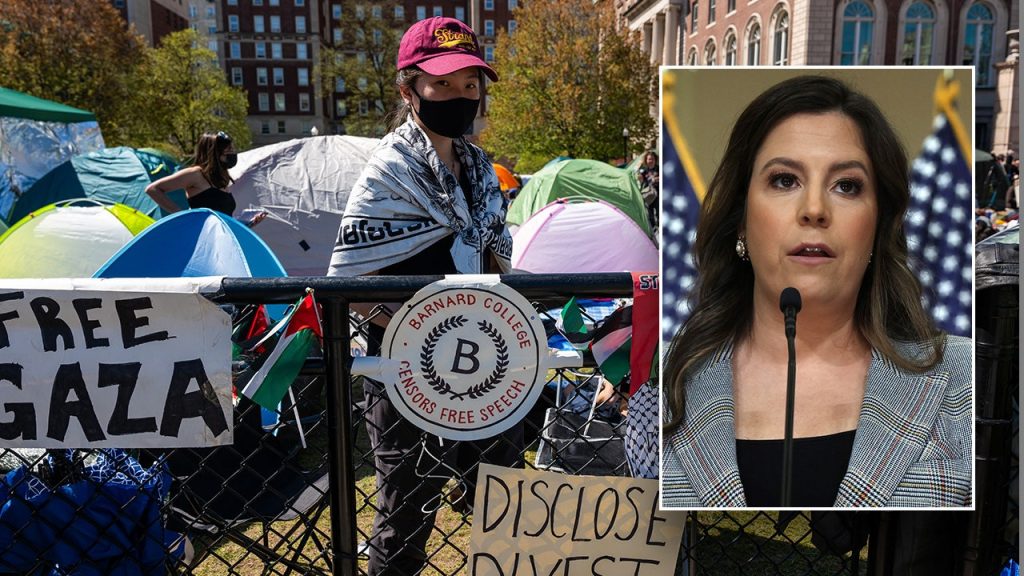House Republicans from New York are calling for Columbia University President Dr. Nemat “Minouche” Shafik to resign amid tensions on campus over the Israel-Hamas conflict. The lawmakers accuse Shafik of failing to provide a safe learning environment for students, leading to chaos on the campus. They expressed no confidence in her leadership and criticized her for allowing the NYPD to arrest protesters at an anti-Israel encampment on campus, only to allow it to reconvene shortly after being cleared.
The letter was led by GOP Conference Chair Elise Stefanik and signed by nine other Republican representatives from the state. They referenced Shafik’s recent congressional testimony on accusations of antisemitism on campus and the school’s role in addressing it. The lawmakers condemned what they described as Shafik’s lax enforcement of policies and double standards, leading to the ongoing turmoil on campus. They called for her prompt resignation in order to restore order at the university.
Columbia University students and attendees of Barnard College have been protesting the university’s investments in companies tied to Israel, leading to tensions on campus. Some Jewish students have reported being physically and verbally targeted by anti-Israel protesters, prompting concern over safety and the shift to hybrid remote and in-person classes. The House Republicans emphasized the need for Columbia University to move past this “shameful chapter” and called for Shafik’s prompt resignation as a step toward restoring order on campus.
The letter from the House Republicans reflects broader criticism of Shafik’s leadership and the handling of protests and unrest on the Columbia University campus. The lawmakers’ demand for her resignation comes amid growing tensions over the Israel-Hamas conflict, with students and activists expressing their grievances through demonstrations and encampments on university grounds. The situation has escalated to the point where classes have shifted to a virtual format to ensure the safety of students and faculty.
Shafik has faced criticism from both progressive activists and conservative lawmakers, with accusations of failing to maintain control on campus and allowing the situation to spiral out of hand. The ongoing conflict between pro-Israel and anti-Israel demonstrators has resulted in physical altercations and verbal confrontations, creating a hostile environment for some students. The demand for Shafik’s resignation reflects a broader call for accountability and leadership change at the university to address the underlying issues contributing to the unrest and chaos on campus.
In response to the demands for her resignation, Columbia University has not issued a public statement. The university’s handling of the situation and the criticism directed at Shafik highlight the complex dynamics at play amid the Israel-Hamas conflict and the broader issues of free speech, campus safety, and political activism. The call for Shafik to step down underscores the deep divisions and tensions within the university community, and the need for decisive action to address the concerns raised by students, faculty, and external stakeholders.


